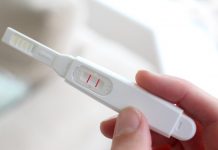Before asking about the amniocentesis procedure risks, you should know that this is a testing method during which there is amniotic fluid removed from the amniotic sac for testing purposes. This is important because this fluid contains the cells of the baby.
Miscarriage
If you have amniocentesis during the second trimester there are some chances of having a miscarriage. The chances are between 0.2% and 0.3%. According to the research done in the field, the chances are higher if the test is performed before the 15th week of pregnancy.
Needle injury
Another one of the amniocentesis test risks is having needle injury. Don’t forget that the baby is moving in the womb and he or she won’t stand still while the doctor inserts the needle.
It is possible for the needle to hit an arm or a leg. Nonetheless keep in mind that there are only rare cases of serious injury.
Leaking amniotic fluid
When it comes to the amniocentesis procedure risks, there is the possibility for the amniotic fluid to leak after the test through the vagina. If the leak is sealed, the pregnancy will proceed normally. However if the leak persists, the baby could have orthopedic problems.
Rh sensitization
Although it is a rare danger of amniocentesis procedure, it may happen for the blood of the mother to reach the bloodstream of the baby. This is why the Rh negative mothers usually receive immunoglobulin after the procedure to avoid Rh sensitization which means that the body of the mother will start producing antibodies against the blood of the baby.
Infection
The women thinking about the amniocentesis procedure risks should know that in rare cases it is possible for the test to lead to a uterine infection. Although this sounds scary, you should know that modern medicine can help you take care of the problem.
Infection transmission
In case you are thinking about the more serious amniocentesis procedure dangers, this is one to consider. If you have some kind of infection, such as HIV, toxoplasmosis or hepatitis C, it is possible for the infection to be passed on to the baby during the test.
Although there are some amniocentesis procedure risks, sometimes the benefits outweigh them. This is something to discuss with your doctor to make sure that you will make an educated decision in this matter.







